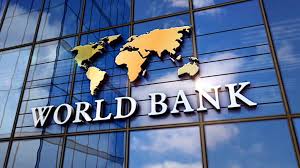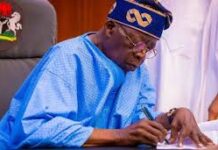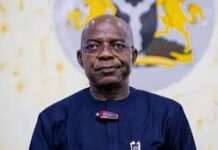The World Bank’s approval of a $1.57 billion loan package for Nigeria aims to strengthen key sectors such as education, healthcare, and power, with the goal of enhancing human capital and resilience to climate challenges. This loan is divided across three major projects: the HOPE-GOV program for governance reform in education and health), the Primary Healthcare Provision Strengthening Program (focused on maternal and child health), and the Sustainable Power and Irrigation for Nigeria Project (aimed at improving water resource management and hydropower).
However, Nigeria has faced issues with embezzlement and mismanagement of funds from foreign aid, casting doubt on the proper utilization of this loan. Past instances, such as the diversion of funds from the National Health Insurance Scheme (NHIS) and other healthcare projects, have raised concerns. Perpetrators, including officials from past administrations, were often implicated, with minimal consequences for those involved. This highlights the ongoing challenge of ensuring that such significant international funding is used effectively, especially considering Nigeria’s history of poor financial accountability.
To avoid a repeat of past mistakes, stringent oversight mechanisms and transparency in fund disbursement and usage are crucial. Nigeria must address these governance issues to ensure that these funds directly benefit the citizens and tackle the systemic inefficiencies that have plagued similar projects in the past. The World Bank’s approval of $1.57 billion for Nigeria to improve its education, healthcare, and power sectors marks a significant commitment to addressing the country’s long-standing infrastructural and service challenges. However, the historical track record of embezzlement and mismanagement of foreign aid funds in Nigeria raises concerns about the effective use of this new allocation.
Historical Cases of Embezzlement
The nation and her people have always quite been skeptical of foreign aids and hwo properly allocated they will be because of past historical records which include; This case of the Malabu Oil Scandal (2013) involved billions of dollars in oil revenue that were fraudulently diverted by Nigerian officials. In 2013, it was revealed that the government had misappropriated funds from a controversial sale of oil blocks. Dan Etete, former Minister of Petroleum, was a key figure in the scandal. It is believed that a substantial portion of the proceeds went to bribes and kickbacks to Nigerian officials. One of Nigeria’s most notable corruption scandals was the fuel subsidy fraud, which saw the misappropriation of over $6 billion meant for fuel subsidies in 2011. The Nigerian government allocated funds to subsidize fuel for its citizens, but multiple reports, including those from the House of Representatives, found that billions were siphoned off by top government officials and oil marketers. In 2020, an audit revealed that over $1.4 billion in NDDC funds were misused, leading to further distrust in the government’s handling of international aid. Multiple directors and executives were accused of embezzlement, and the commission became synonymous with corruption.
The Challenge of New Funding
With the World Bank’s $1.57 billion earmarked for vital sectors, questions arise regarding how this money will be managed to avoid past pitfalls. The government has pledged to implement strict oversight mechanisms, but previous scandals have demonstrated that such measures often fail. The key issues are; Lack of Transparency in which Nigerian institutions often lack sufficient mechanisms to ensure the transparency of how funds are disbursed, particularly in public sector projects and Weak Enforcement of Accountability when embezzlement is detected, the enforcement of penalties and the prosecution of perpetrators has been weak. High-profile cases like those involving the NDDC or the fuel subsidy scam saw minimal long-term consequences for the guilty parties.
How Will This Time Be Different?
The World Bank may enforce stricter monitoring and evaluation processes, demanding regular reports and audits. This could help ensure more transparent. The increasing involvement of Civil Society and the media could help hold officials accountable and act as watchdogs on the ground. President Bola Tinubu has indicated reforms such as the removal of the fuel subsidy, which had long been a drain on public finances, and efforts to unify Nigeria’s multiple foreign exchange markets. These steps have been painful for many Nigerians due to the immediate increase in fuel prices and inflation, but they were necessary to prevent a financial collapse. To ease the short-term suffering, the government has introduced palliative programs, such as cash transfers, minimum wage increases, and the distribution of fertilizers and grains to vulnerable groupsaimed at reducing corruption, which may help prevent the misappropriation of funds. Additionally, Nigeria’s growing relationship with international anti-corruption bodies could lead to more rigorous audits. nWhile the $1.57 billion is a welcome development for Nigeria’s critical sectors, past examples of fund mismanagement cast a shadow on its success. The government will need to demonstrate commitment to transparency and enforce accountability measures effectively if this new funding is to have a lasting impact.
Future of Nigeria and Foreign Aids
Nigeria, despite being one of the largest economies in Africa, has relied heavily on foreign aid, loans, and assistance from institutions like the World Bank, IMF, and various international organizations. While this aid has provided some short-term relief, it has often led to dependency, stunted growth, and the mismanagement of resources. In order for Nigeria to rise to the level of developed nations, it must focus on sustainable, self-driven economic strategies rather than continuously depending on external assistance.

Developing nations like Nigeria, with vast natural resources and a growing population, should take ownership of their own economic destiny, One reason for the shift is ethical responsibility. Relying on aid not only perpetuates dependency but also limits Nigeria’s capacity for innovation and self-sufficiency. Economically, aid dependency has often been linked to corruption and poor governance in recipient countries. In Nigeria, instances like the embezzlement of funds from aid-driven projects exemplify how aid has been misused and diverted, instead of reaching those in need. This undermines the very goals aid is supposed to achieve. By reducing reliance on aid, Nigeria can work towards developing stronger institutions that are accountable and transparent. Developed nations have shown that foreign aid is not a sustainable model for growth. These nations focused on creating robust economies through innovation, strategic investments in human capital, and fostering industries that promote local production and export. Nigeria has immense potential to grow in the same way. By investing in education, diversifying the economy, and encouraging entrepreneurship, the country can build a resilient, self-sustaining economy.
Nigeria needs to stop viewing foreign aid as a permanent solution and focus on economic self-reliance. This shift will not only improve governance but will also empower the country to tackle its challenges more effectively. As economic independence becomes the goal, Nigeria can truly begin to grow and transform like other developed nations.








